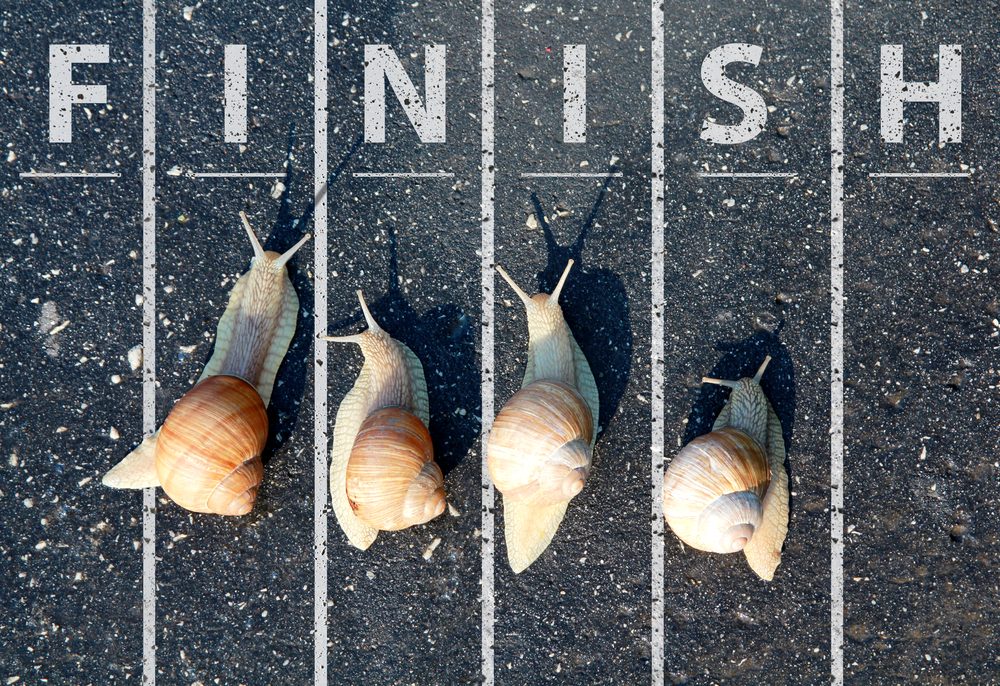
Today’s guest post is by Rachel Pieh Jones (@RachelPiehJones), author of Stronger Than Death.
In 2012 I published a Modern Love essay in The New York Times. The essay led to landing a literary agent for a memoir. For two years, I wrestled with the proposal, which never quite satisfied her standards. I developed a second proposal, which also failed to meet her approval. A third, same failure. There were some bizarre email exchanges and eventually, I ended the working relationship.
I failed. I’d had my chance. I had an agent, but couldn’t produce a book worthy of being published, or even shopped around. I thought this was the most discouraging thing that could happen in my writing career.
A year later, I summoned my courage and sent another round of agent queries for that third book proposal, narrative nonfiction based in Africa. I signed with a new agent! After a cursory round of edits, she sent out the proposal. An editor at a big five publisher was interested. We had an encouraging call but she came back a devastating “no.”
I was told readers didn’t care about Africa. I was told my proposal sounded more like a magazine piece than a book. I was told this wasn’t the time for global stories or biographies.
This agent and I parted ways.
I thought that first agent failure was discouraging. But now, I had been so close, the Big Five! And I’d failed again. It felt like running a marathon and collapsing fifty meters from the finish.
What was wrong with me? I expressed my despair to a writer friend, said I would quit. He said, “You can lay on the floor and cry for one day. Tomorrow, get up and get back to work.”
I did exactly that. But this time I interrogated why, exactly, had I come up short with these proposals, agents, and editors? Was it my writing, my ideas, my methods?
I refused to believe that American readers didn’t care about Africa or that now wasn’t the time for biographies. I knew my story was a book, not a magazine article. It was an epic adventure spanning several decades and multiple countries, a story that turned conversations about race, faith, humanitarian aid, and sexual violence upside down. I’d been told my writing and this story were powerful.
What was I doing wrong?
After a few months of wallowing in my perceived failures, I realized I had not really done the work of targeting. My book was an international story focused on issues of contagious disease, interfaith relationships, and social justice. These words were much more specific than “narrative nonfiction” or “biography.”
I searched for publishers with books in these categories, who would take me without an agent. I wanted to pitch the story the way I saw it, as a woman who lives in Africa and engages in development work, not through the lens of a New York City literary agent.
I sent the proposal to Plough Publishing. We had a phone call. I knew immediately this was the place for my book, I could tell they would honor the story, they understood what made this story resonate now. We signed and the book will be published October 1, 2019.
Then they bought my next proposal, which was loosely based off the proposal that landed my first agent way back in 2012.
Here’s what I learned, lessons I believe apply to writers at every stage.
- You are not a failure. Your book may have failed to connect with an agent or an editor. This is not a reflection of you, the human. You are not an idiot, loser, or disappointment. You are not ridiculous. I spoke all these words over myself and they were all lies. I felt disappointment, like I had failed, like I had reached ridiculously above my abilities. But I had tried something hard, had made brave choices, hadn’t quit, and knew what I wanted, even if I didn’t quite know how to achieve it.
- Press through discouragement. Don’t give up. If this is what you want, keep doing the work. Speak words over yourself like brave, persistent, creative, strong, resilient. Feel the discouragement, don’t deny it, but then don’t settle there, either.
- Have a writing community. Find that friend who can let you cry for a day and who will then push you back up. Do the same for your writing friends on their rejection days.
- Tweak. Listen to feedback, especially the rejection feedback, and revise. Decide what you are willing to change and what is essential. Yes, kill some darlings. But don’t necessarily kill them all, or you’ll risk losing distinctiveness.
- Focus the pitch. Know your niche. The more specific you can be, the stronger your pitch will be, and the easier it will be to target the right agent or publisher, and eventually, the right reader.
- Take a risk. Maybe it is time to drop the agent with whom you just aren’t connecting, or who doesn’t grasp your story and vision. This requires courage and humility. It feels really good to say, “my agent.” But if it isn’t a great fit, that phrase might not ever transform to, “my book.” Maybe it is time to Google off the beaten path and find a unique publisher or different agent.
- Find your people. Your book is not for everyone. I wrote a guidebook to the country where I live, Welcome to Djibouti. You should not buy it, unless you are coming here for work or touring. Knowing who your book is not for can help you know who it is for. Identify your audience as precisely as possible, even in the early pitching stages.
- Know your story. Knowing what happens chronologically is one thing but being able to describe what it means is another. The ‘what happens’ keeps a reader reading, but the ‘what is it about’ compels a reader to feel connected to a story, and this is what will eventually sell the book to an agent or publisher, and your reader.
I’m thankful for the input I received from the two literary agents, even though we weren’t successful together. My writing and my understanding of the publishing world are better because of our interactions. But I’m also glad I was willing to step out on my own and not give up.
You can do this, don’t take no for an answer. Hear it, adjust as necessary, and press on. There is an audience for your work, you just need to find it.
Rachel Pieh Jones writes about life at the crossroads of faith and culture. Her work is influenced by living in the Horn of Africa, raising three Third Culture Kids, and adventurous exploration of the natural world. She has been published in The New York Times, Runner’s World, Deadspin, Christianity Today, and more. Her fourth book, Stronger than Death: How Annalena Tonelli Defied Terror and Tuberculosis in the Horn of Africa, releases in October 2019. Stay in touch with Rachel through her Stories from the Horn newsletter.


Good afternoon —
Super article!
Steve
Thanks, Steve!
Every writer needs to hear this – often! Thanks –
I need to speak it to myself over and over!
Thanks for sharing your experience. I’m so glad you persisted and were able to find a home for your book.
Thanks, Allison. Me too!
I love your friend’s advice—you may cry for one day. Then get back to work. Rejection means you’re doing your job. Congratulations.
So thankful for wise friends. And I love this – about rejection meaning we’re doing our jobs.
Thank you for this encouragement. I found it really helpful.
Overall, a great article. I am all for being positive and persistent myself.
But you end up by saying, “You can do this, don’t take no for an answer. Hear it, adjust as necessary, and press on. There is an audience for your work, you just need to find it.”
This may be great advice for a lot of people but not for everyone.
Marc Allen, owner of New World Library Publishing who wanted to publish my “The Lazy Person’s Guide to Success” (I had 4 other publishers interested), recently talked about the submissions they have had to deal with at his publishing house:
“We’ve had submissions from someone in L.A. who said he was the Second Coming of Christ, and from someone who claimed to be the only direct channel of God on earth. We’ve had a children’s book with art so crazy you couldn’t tell what was going on, complete with a cover letter saying a psychic had told him that we would publish it and sell 8 million copies. Some are absolutely unreadable rants and dark, paranoid weirdness. We’ve even had cosmic formulas and symbols that explained the unified field theory and other things that were totally incomprehensible — honest to God, not one person here had any idea what some of these writers were talking about.”
— Marc Allen
In short, there are people who will never find an audience for their work.
[…] For writers pursuing the traditonal publishing path, Janet Reid responds to an author wondering if the submitted manuscript ended up in the agent’s spam folder, and Rachel Pieh Jones tells us what happened after she lost her agent—twice. […]
[…] https://janefriedman.com/lost-my-agent/ “In 2012 I published a Modern Love essay in The New York Times. The essay led to landing a […]
Congratulations! I am very familiar with Plough and it’s great to see your book on their website. Thanks for the words of encouragement.
This is so encouraging! I’ve also been through 2 agents. #1, a successful agent, a SAINT and a true champion of my work, (she shopped it around, etc) up and retired after 3 years. I know why, but I won’t say. #2 took me on as a favor to #1, but was 100% unhappy with shopping my work or following up on anything. That was not a good partnership. Now, I’m back in the trenches and pressing onward. Quitting is for those who smoke, drink, or eat Tide pods.